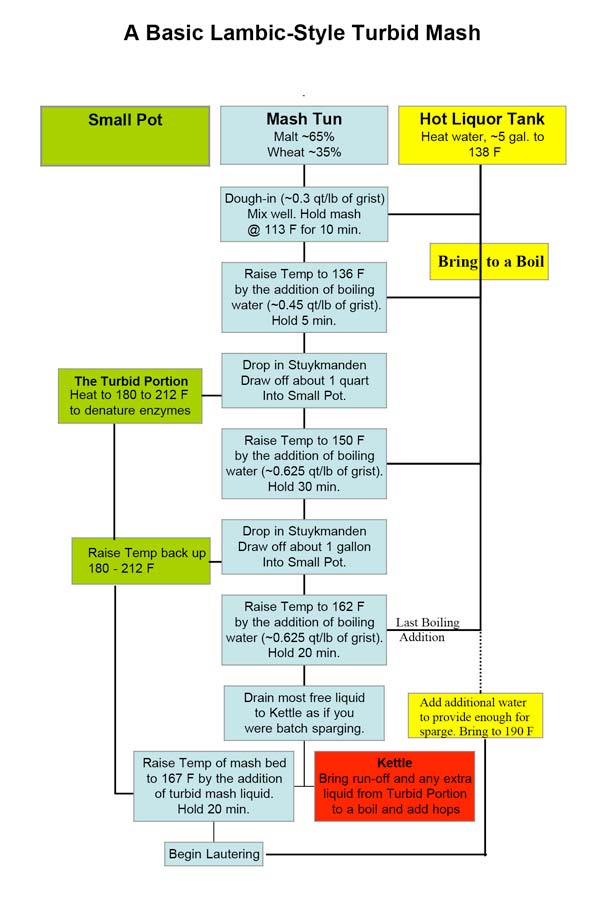Topic: Mashing
Build a Mash Temperature Controller
I spent a lot of time controlling temperatures on the cold side of the brewing process in my early homebrew days, including temperature control during grain, hop and yeast storage, yeast propagation
Mash Stirring
This is a pretty weighty topic because stirring the mash does a few things to the mash. To avoid a geeky treatise I will cover this from a treetop level. So why
Mash Temperatures
Unfortunately, enzymes do not “renature” once they have been heated to the point of thermal inactivation and later cooled. Enzyme denaturation can be likened to cooking an egg, since egg whites and
Mash Hopping
The direct answer to this question is no. Hops do not need to be figured into the water-to-malt calculus. This ratio is used to determine strike water temperature and has a real
Step Mashing Techniques
Learn the steps of step mashing, and when (or if) they are necessary.
Mash Starches
Mr. Wizard analyzes what happens to starches in the mash tun & more.
Denatured Enzymes
Hey Joe . . . I heard you cooked your old alpha amylase down . . . how are you going to mash now? I guess if you believe the threads about
Mashing Out
Mr. Wizard
Reduced Mash Times
There are some brewing topics I address because I have been asked, and some subjects I opine about whether asked to or not. And there are some things I tend to avoid.
Mash Stirring
There is indeed much information about mash stirring and the use of agitated mash mixers is the norm in modern commercial breweries. The primary reason for stirring the mash is to provide
Sour Mashing Techniques
Do you like beers with a little tart twinge to them? Or would you like to acidify your mash without adding calcium? If so, you may want to think about sour mashing — the other sour brewing technique.
Turbid Mashing
As Belgian-inspired beers grow in popularity and continue to nudge their way into North American beer culture, the desire to brew better, more adventurous, creations pushes brewers forward to find the next




